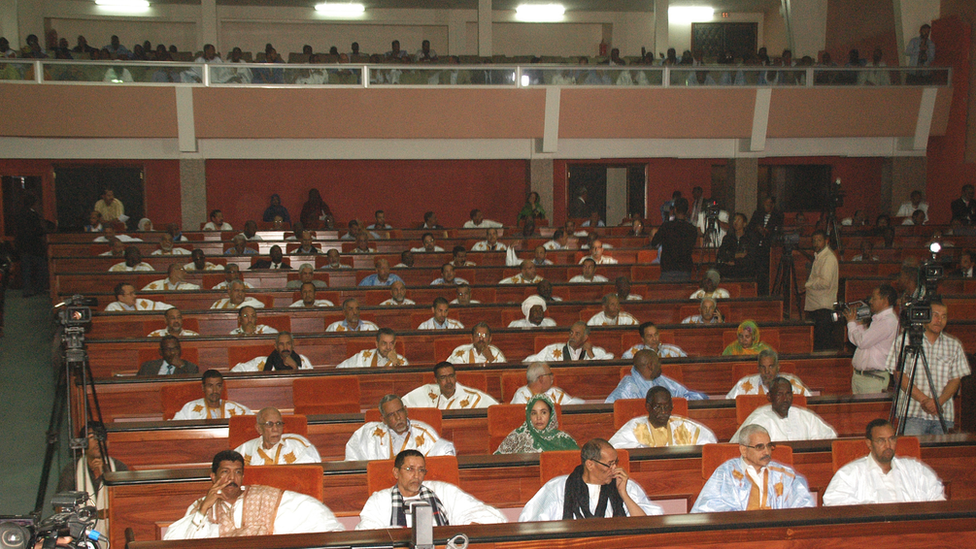Mauritania denies banning French from parliament
- Published

Parliament reflects Mauritania's multi-ethnic population
A row over the use of French in parliament has revived a national debate about broader language policy in Mauritania.
The African service of France's RFI international broadcaster reported that Mauritania's National Assembly had banned deputies from using French in the chamber, - in French - from the parliament on its own website.
"The report has no basis. French has never been banned... in fact deputies expressed themselves in that language most eloquently at the last plenary session... and French along with Arabic remains a language of written communication for the laws, documents and correspondence of the National Assembly," the statement says.
The RFI report had quoted Cheikh Ould Baya, the chairman of the National Assembly, telling the previous session of parliament that a ", as you have four languages in which to address Mauritanians as provided for in the Assembly".
'Not technically possible'
The four languages in question are Arabic, the sole official language, and three indigenous languages that enjoy "national status" under the constitution - Pulaar, Soninké, and Wolof.
French has no official status, but is still widely understood and used as an inter-communal language in multi-ethnic Mauritania, especially in the media and business.
The parliamentary statement clarified that Mr Ould Baya meant that the simultaneous translation of speeches into French will end, because the interpreting service "can no longer cover more than four languages".
A senior parliamentary official, Sid'Ahmed Ould Saleh, confirmed this, telling RFI that " because it is not technically possible" to do so any more, on the grounds that the national languages must take priority in terms of resources.
But he sought to reassure listeners that deputies "can and will always be able to speak in French".
You may also be interested in:
The French legacy is a sensitive topic in Mauritania, which was a colony of France from 1903 to 1960. It changed its flag in 2017, adding two red stripes to honour those who died fighting for independence.
But the opposition Rassemblement des Forces Democratiques (RFD) has criticised the parliamentary decision on the French language as a "", and demanded a rethink.
It also couched its complaint in the context of a wider national debate on language policy.
The interpreting service translates to and from Arabic and the other three languages, but does not interpret among the three national languages themselves, the RFD said.
'Attack on national cohesion'
It also objected that the National Assembly's television channel does not translate interventions in the non-Arabic languages - "giving the impression that the deputies are only speaking to their own communities".
The RFD called parliament's treatment of the language issue a "serious attack on national cohesion".
The , where campaigners are demanding that they should be taught in schools.
But the re-ignition of the language debate might, as RFI sees it, at least let Francophone interpreters at the National Assembly "".
Mauritania's new flag repudiates the French colonial legacy
Reporting by Vera Le Quesne-Papic
Next story: Russian police convicted of busting own drug den